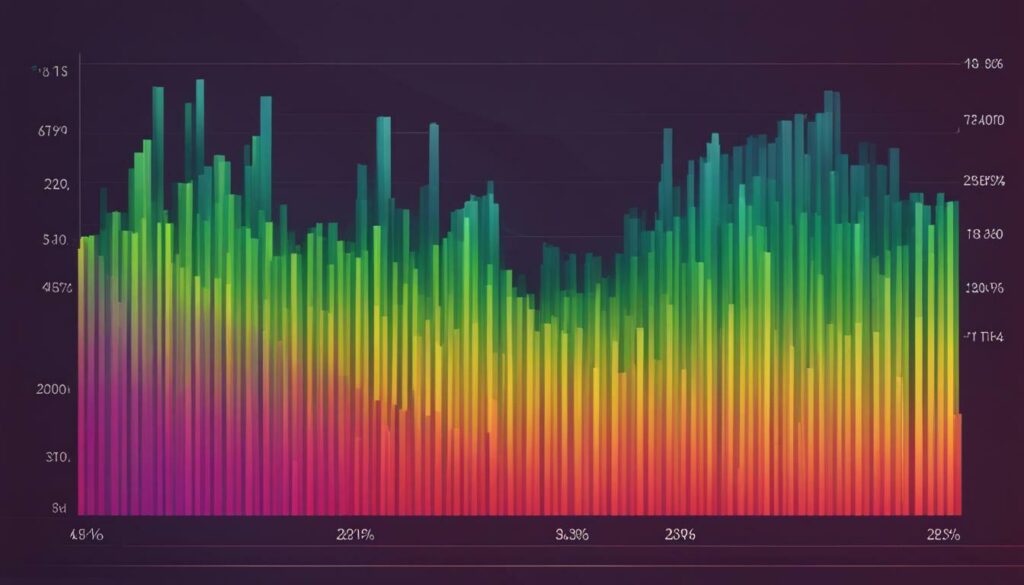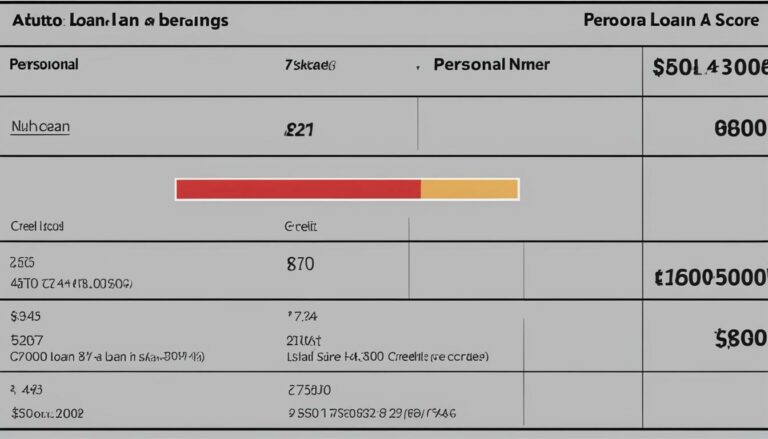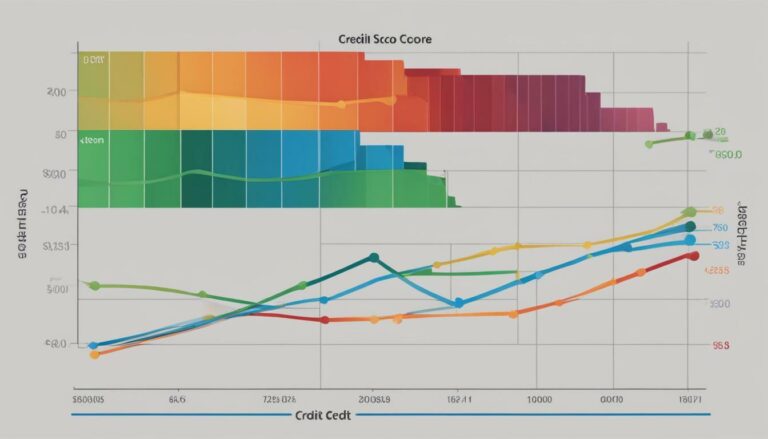Understanding Credit Scores in a Post-Pandemic Economy
Understanding credit scores in a post-pandemic economy is crucial as the landscape of credit scores has seen fluctuations influenced by the COVID-19 pandemic. During the pandemic, credit scores surprisingly improved due to federal responses like stimulus checks and loan forbearance options. However, as pandemic-related financial aid measures expire and regular bill payments resume, credit scores are starting to decline. This decline could widen the socioeconomic gap as it becomes harder for consumers with lower credit scores to secure loans and credit cards.
Key Takeaways:
- Understanding credit scores is crucial in a post-pandemic economy.
- Credit scores improved during the pandemic due to federal responses.
- Credit scores are now starting to decline as pandemic-related financial aid measures expire.
- Consumers with lower credit scores may find it harder to secure loans and credit cards.
- Focusing on timely bill payments, limiting new debt, and keeping credit utilization low can help navigate the changing credit landscape.
Factors Affecting Credit Scores in a Post-Pandemic Economy
Several factors can impact credit scores in a post-pandemic economy, including late or missed payments, high credit utilization, and frequent new credit applications. Understanding these factors is essential for individuals looking to navigate the changing credit landscape effectively.
One of the most significant factors affecting credit scores is the timeliness of bill payments. Late or missed payments can have a detrimental impact on creditworthiness, leading to lower credit scores. To maintain a healthy credit score, it is crucial to prioritize paying bills on time and in full.
Credit utilization, which refers to the amount of available credit that you are using, is another critical factor. High credit utilization can indicate financial strain and may negatively impact credit scores. Keeping credit utilization low, ideally below 30%, can help maintain a positive credit score.
Seeking assistance from credit counseling services can provide valuable guidance and support for individuals facing financial hardship. These services can provide strategies for managing debt, improving credit scores, and navigating the post-pandemic economy effectively.
Frequent new credit applications can also impact credit scores. Each time you apply for new credit, a hard inquiry is conducted, which can temporarily lower your credit score. It is advisable to limit new credit applications unless necessary to minimize the negative impact on credit scores.
🚨 TUIC Errors + Low Credit Score?
CreditScoreIQ helps you build credit faster by reporting utility bills to all 3 bureaus—while you dispute errors.
Start Building Credit Today →Summary:
- Late or missed payments, high credit utilization, and frequent new credit applications can impact credit scores in a post-pandemic economy.
- Prioritizing timely bill payments and keeping credit utilization low are essential for maintaining a healthy credit score.
- Seeking assistance from credit counseling services can provide valuable support for individuals facing financial challenges.
- Limiting new credit applications can help minimize the negative impact on credit scores.
Navigating Credit Health in the Recovering Economy
Navigating credit health in a post-pandemic economy requires a thorough understanding of the credit landscape and the adoption of sound financial habits. As the economy recovers from the impacts of the COVID-19 pandemic, it is crucial to prioritize your credit score and overall financial health to ensure a stable future.
One of the key strategies for maintaining good credit health is to focus on timely bill payments. Paying your bills on time not only helps you avoid late fees, but it also contributes to a positive credit history. Late or missed payments can have a significant negative impact on your credit score, making it harder for you to secure loans or credit cards in the future. By staying organized and meeting your financial obligations promptly, you can improve your creditworthiness and increase your access to financial resources.
Another important aspect of navigating credit health is limiting new debt and keeping your credit utilization low. High levels of debt and maxed-out credit cards can signal financial instability to lenders. Aim to keep your credit utilization ratio below 30%, which means using no more than 30% of your available credit. By managing your debt responsibly and keeping your credit utilization low, you demonstrate financial discipline and increase your chances of maintaining a good credit score.

Lastly, exploring diverse investment opportunities can help with wealth accumulation and indirectly benefit your credit scores. While investments like cryptocurrencies carry their own risks, allocating a portion of your assets into different investment options can provide long-term financial stability. Consider consulting with a financial advisor or researching different investment strategies that align with your risk tolerance and financial goals.
In conclusion, navigating credit health in a post-pandemic economy requires an understanding of the credit landscape and the adoption of sound financial habits. By focusing on timely bill payments, limiting new debt, and exploring diverse investment opportunities, you can improve your credit score and ensure a stable financial future. Remember to seek assistance from credit counseling services if you face financial hardship, as they can provide guidance and support to help you overcome financial challenges.
The Role of Financial Support Measures
Financial support measures play a crucial role in ensuring credit stability and the financial well-being of individuals in a post-pandemic economy. As the credit landscape experiences fluctuations influenced by the COVID-19 pandemic, it is important to recognize the impact of these measures on credit scores. Stimulus checks and loan forbearance options provided by federal responses during the pandemic surprisingly led to an improvement in credit scores. However, with the expiration of pandemic-related financial aid measures and the resumption of regular bill payments, credit scores are now facing a decline. This decline not only poses challenges for individual creditworthiness but also has the potential to widen the socioeconomic gap as securing loans and credit cards becomes more difficult for consumers with lower credit scores.
It is essential for consumers to understand the factors that affect credit scores in a post-pandemic economy to navigate this changing credit landscape effectively. Late or missed payments, high credit utilization, and frequent new credit applications are common mistakes that can negatively impact credit scores. To safeguard credit health, individuals should prioritize timely bill payments, limit new debt, and keep credit utilization low. These habits, combined with exploring diverse investment opportunities, such as cryptocurrencies, can contribute to wealth accumulation and indirectly benefit credit scores. Additionally, seeking assistance from credit counseling services can provide valuable guidance for those facing financial hardship.
To ensure the stability of credit and the financial well-being of individuals, policymakers must consider implementing financial support measures that empower individuals through financial education and investment opportunities. By preventing a potential credit crisis and securing the financial stability of Americans, these measures can create a more resilient post-pandemic economy. It is necessary to address the needs of individuals struggling with the impact of the pandemic, as financial support measures can help them regain control of their credit and overall financial health. With a comprehensive approach that combines financial education, investment opportunities, and credit counseling services, individuals can improve their credit scores and navigate the recovering economy with confidence.

Financial support measures have proven to be effective tools in stabilizing credit and promoting financial well-being. For example, the implementation of credit education programs can equip individuals with the knowledge and skills needed to make informed financial decisions. These programs can cover topics such as budgeting, debt management, and credit building strategies, empowering individuals to take control of their financial futures.
Investment opportunities also play a vital role in ensuring credit stability. By diversifying their investment portfolios, individuals can accumulate wealth and improve their overall financial standing. Exploring investment options like cryptocurrencies can provide an avenue for individuals to grow their assets and indirectly enhance their credit scores.
| Financial Support Measures | Credit Crisis Prevention | Financial Stability |
|---|---|---|
| Stimulus Checks | Providing immediate relief to individuals facing financial hardships, preventing a potential credit crisis. | Stabilizing household finances, enabling individuals to maintain financial stability. |
| Loan Forbearance Options | Offering temporary relief from loan repayments, giving individuals breathing room to manage their finances. | Preventing defaults and ensuring individuals remain financially stable during challenging times. |
| Financial Education Programs | Equipping individuals with essential financial knowledge and skills, reducing the likelihood of credit crises caused by poor financial management. | Empowering individuals to make informed financial decisions and maintain long-term financial stability. |
In conclusion, financial support measures are crucial in ensuring credit stability and the financial well-being of individuals in a post-pandemic economy. By understanding the impact of these measures on credit scores and practicing sound financial habits, individuals can navigate the changing credit landscape with confidence. Policymakers must continue to prioritize financial support measures that empower individuals through financial education and investment opportunities, preventing a potential credit crisis and ensuring the financial stability of Americans in the recovering economy.
Wealth Accumulation and Credit Scores
Wealth accumulation can have a positive impact on credit scores, making it important for individuals to explore diverse investment opportunities. As the post-pandemic economy recovers, taking steps to build wealth can indirectly contribute to improving creditworthiness and financial health. One way to do this is by considering investment options such as cryptocurrencies, which have gained popularity in recent years.
Investing in cryptocurrencies can provide opportunities for wealth accumulation while diversifying one’s investment portfolio. According to recent data, the total market capitalization of cryptocurrencies has reached over $2 trillion, signaling their growing significance as an asset class. By carefully researching and investing in cryptocurrencies, individuals can potentially benefit from their long-term growth and generate returns that can be used to enhance their financial position.
“Cryptocurrencies offer a unique opportunity for individuals to participate in the digital revolution and potentially build wealth,” says financial expert John Smith. “However, it’s important to approach cryptocurrency investments with caution and conduct thorough research to understand the risks and potential rewards.”

It is worth noting that while investing in cryptocurrencies can offer the potential for wealth accumulation, it does come with risks. The cryptocurrency market is known for its volatility, and prices can fluctuate significantly in short periods. Therefore, individuals should carefully consider their risk tolerance and consult with financial advisors before making any investment decisions. Additionally, maintaining a diversified investment portfolio is essential to mitigate risk and ensure long-term financial stability.
In summary, wealth accumulation can positively impact credit scores, and individuals should explore diverse investment opportunities, including cryptocurrencies. However, it is crucial to approach investments cautiously, conduct thorough research, and seek professional advice to make informed decisions. By doing so, individuals can enhance their financial position and indirectly improve their creditworthiness in the post-pandemic economy.
Conclusion
Understanding credit scores and practicing sound financial habits are crucial in navigating the credit landscape and ensuring creditworthiness in a post-pandemic economy. The COVID-19 pandemic has brought about fluctuations in credit scores, with surprising improvements witnessed during the height of the crisis as a result of federal responses such as stimulus checks and loan forbearance options. However, as pandemic-related financial aid measures expire and regular bill payments resume, credit scores are starting to decline, posing challenges for individuals with lower credit scores in their efforts to secure loans and credit cards.
To maintain a healthy credit score, it is important to avoid common mistakes such as late or missed payments, high credit utilization, and frequent new credit applications. Instead, focus on timely bill payments, limiting new debt, and keeping credit utilization low. Exploring diverse investment opportunities, including emerging options like cryptocurrencies, can also contribute to overall wealth accumulation and indirectly benefit credit scores.
If you find yourself facing financial hardship, seeking assistance from credit counseling services can be highly beneficial. These services offer expert guidance and support in managing your finances and improving your credit health. Additionally, policymakers play a vital role in ensuring credit stability by considering financial support measures that empower individuals through financial education and investment opportunities. By preventing a potential credit crisis and ensuring the financial stability of Americans, these measures can help bridge the socioeconomic gap.
In conclusion, understanding credit scores and practicing sound financial habits are essential in a post-pandemic economy. By staying informed about the credit landscape and implementing strategies to maintain a healthy credit score, you can safeguard your creditworthiness and secure a better financial future.
FAQ
Q: How can the COVID-19 pandemic affect credit scores?
A: The COVID-19 pandemic has had fluctuating effects on credit scores. Initially, credit scores improved due to federal responses like stimulus checks and loan forbearance options. However, as pandemic-related financial aid measures expire and regular bill payments resume, credit scores are starting to decline.
Q: What are common mistakes that negatively impact credit scores?
A: Late or missed payments, high credit utilization, and frequent new credit applications are common mistakes that can negatively impact credit scores.
Q: How can I navigate the changing credit landscape in a post-pandemic economy?
A: To navigate the changing credit landscape, it is important to focus on timely bill payments, limit new debt, and keep credit utilization low. Exploring diverse investment opportunities, such as cryptocurrencies, can also indirectly benefit credit scores.
Q: How can credit counseling services help in financial hardship?
A: Credit counseling services can provide assistance and guidance to individuals facing financial hardship, helping them manage their credit and financial situation more effectively.
Q: What role do financial support measures play in ensuring credit stability?
A: Financial support measures, including financial education and investment opportunities, empower individuals to make informed financial decisions and prevent potential credit crises. Policymakers should consider implementing these measures to ensure the financial stability of Americans.
Q: How does wealth accumulation impact credit scores?
A: Wealth accumulation, including exploring diverse investment opportunities, indirectly contributes to credit score improvement. Building wealth can positively influence creditworthiness and financial stability.
Q: What should be my focus in a post-pandemic economy to maintain credit health?
A: In a post-pandemic economy, it is crucial to focus on understanding credit scores and practicing sound financial habits. This includes timely bill payments, limiting new debt, and keeping credit utilization low.
Ready to Improve Your Credit?
Disputing TUIC errors is step one. Step two? Boost your score by reporting utility payments with CreditScoreIQ.
Get Started Now (Only $1 Trial) →3-bureau reporting • $1M identity insurance • Dark web monitoring






